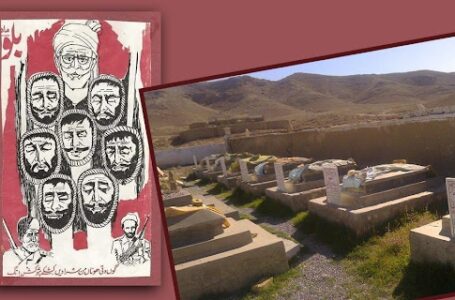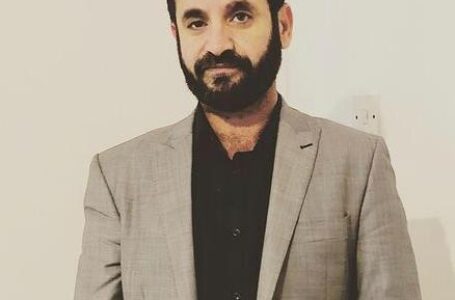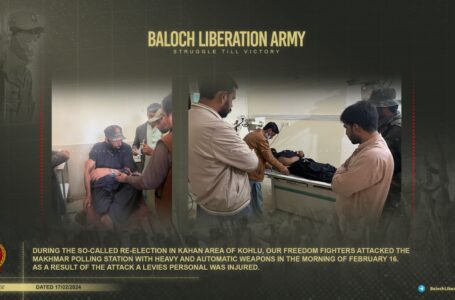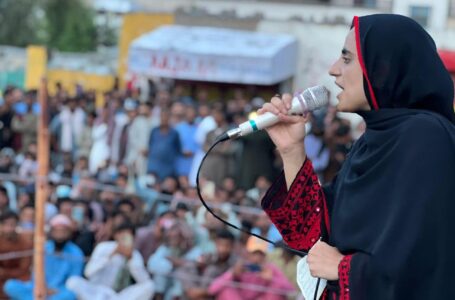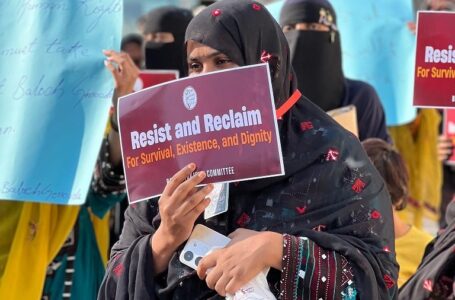FBM Holds Simultaneous Protests Against Pakistan’s Nuclear Tests on Baloch Land
World refugee day: The lost refugees of Balochistan
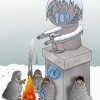
By Fateh Jan Baloch
The refugees’ crisis in Balochistan started when Pakistan forcibly invaded the sovereign Baloch in 1948. Since 55000 people, mainly Hindus, Christians, and other religious minorities, become refugees and IDPs. After Balochistan’s occupation, dozens of Hindus and other minorities were killed by the Pakistani army and the rest have migrated to safe lands, such as in India, for survival.
Pakistani Army has conducted 1973 military operation within one year which is average 5.4 military operations per day which have directly affected nearly two million civilians. The Human Rights organizations claim that nearly one million are living as refugees and rest as IDPs only nearly fifty thousand civilians are facing worst humanitarian condition in Afghanistan, Iran and other parts of Pakistan.
Since the latest phase of Baloch struggle and Pakistan’s counter struggle offensives census indicate the Population of Dera Bugti and Kohlu was more than 300,000 and nearly 90 per cent were forced to migrate as the result of Pakistani military offensives.
In the same way, around the entire Makuran region has been affected by Pakistani military operations and according to sources, nearly two hundred thousand have relocated and become refugees or either IDPs. Nearly 95 per cent of affected populations rely on farmlands and due to relocation; they have lost their main source of income.
According to Faiz Baluch, the editor of Balochwarna News and an activist of Free Balochistan Movement, who himself has been living as a Baloch refugee since childhood, “nearly one million people have become refugees and IDPs as the direct result of Pakistani authority’s offensives in Balochistan since the year early 2000. The refugees are mostly living in Afghanistan, Iranian Occupied Baluchistan and different cities of Pakistan occupied Baluchistan and many have also migrated to Sindh and Punjab.”
He added that only a few lucky ones fled to Europe and other Western countries. “They are lucky because they have the freedom and better chances to highlight the suffering of their people back home from the safety of democratic nations.”
According to an estimate by the United Nations, there were 84000 IDPs (Internally Displaced Persons) in Balochistan including 26000 women and 33000 children by 2006. The report also added that more than one hundred children also died as a result of preventable diseases. The HRCP (Human Rights Commission of Pakistan), however, believes that 50000 more have become IDPs since 2006. On the other hand, a fact-finding committee headed by the Balochistan Assembly opposition leader Advocate Kachkol Ali Baloch, put the total numbers of IDPs at 250000 as the UN figures cover only 3 districts.
In the third insurgency, nearly 65,000 people became refugees in 1970 and moved to Afghanistan where they have become the victims of Pakistani sponsored Jihadist groups. ‘Our Camps were attacked nearly every month by the Pakistani Army undercover officials and we have lost a number of innocent civilians’ Says Naimat Marri, A 70-year-old refugee who migrated to Afghanistan during the Zia regime from Pakistan occupied Balochistan. In the fifth insurgency, there have been nearly more than two hundred attacks on refugee camps in which more than 500 people were killed including women and children.
Miral Bugti is an IDP from Balochistan who sells tea in the Sea View in Defence Karachi, has left with hundreds of others after the Pakistani Army bombard the city and killed around 80 civilians in a single day. The media claims that almost more than one thousand houses were destroyed by explosives and the rest of the city was converted into a military cantonment.
He further explained his condition that they have no choice to expect to sell tea earns them five dollars a day which is 76 per cent less than the average income in Pakistan. He also said that two of his children contracted hepatitis as a result of drinking contaminated water. His children were refused to be treated under the orders of the army in Jafarabad. One of his sons died a few days after he reached Karachi to find work and earn money for the private treatment of his other son. All his efforts have gone in vain as he has not been able to get any Job or help.
A senior official of Human Rights Commission of Pakistan (HRCP) has said on the promise anonymity, “We have dozens of reports which clearly proves that the thousands of deaths of civilians including children happened as the government of Pakistan put a blockade to international help and even some Journalists have been killed for shedding light on the condition of Victims.”
Unfortunately, still, the Plea of Baloch refugees is not reported by media and Human Right organizations. Even the developed and civilized countries have not shown enough support to the Baloch issue as they did for Syria and Myanmar and other countries. From the year 2000 till now a few hundred Baloch have moved to Europe and other Western countries to save their lives but they haven’t been given the same priority as other refugees from elsewhere. In many cases, countries such as Norway, Germany and other European Baloch refugees have to wait for many years before their fate is decided by power holders.
Cartoon courtesy: Shahid Atiqullah

